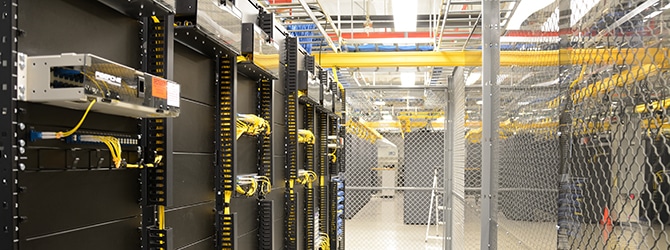Hybrid Server, Dedicated Server, Or Cloud: Which Is Right For Your Project?

Choosing the right hosting option for your project is important. It will help ensure you have a positive experience and only pay for the infrastructure you really need.
But finding exactly the right hosting isn’t easy. There’s an almost infinite variety of options, but many of those options have more to do with marketing than the technical attributes of the platform.
At ServerMania, we offer three basic choices for server hosting:
Between these three core products, almost every server hosting base is covered, from small-scale dev servers to the largest multi-server clusters.
Each server type has particular strengths. They all offer a complete and independent server environment, but each is particularly suitable for a specific type of deployment.
Let’s have a look at the sort of projects that play to the strengths of these platforms.
Hybrid Servers

Hybrid servers are a virtualized server platform based on powerful enterprise-grade physical servers. Each physical server hosts a small number of Hybrid Servers, allowing each Hybrid Server to have more guaranteed resources than a typical virtual private server.
Hybrid servers are great for any almost any project: testing and dev servers, web hosting servers, backend servers for mobile applications, and many more.
There are two occasions when hybrid servers are not the best option: when you need to be able to dynamically resize your server’s resources, and when you need the performance of bare metal.
Dedicated Servers

Dedicated servers are the pinnacle of server hosting if you can make no compromises where performance is concerned. Each dedicated server is a physical server and clients have full access to the bare metal resources of that server.
Dedicated servers are good for all the same tasks as a Hybrid Servers, with the addition of high-performance workloads that demand optimal IO performance, large amounts of memory, or heavy-duty processing. Typical Dedicated Server uses include financial applications, database servers, as a platform for running many virtual servers or containers, and for hosting multiple websites or a high-traffic website or eCommerce store.
Cloud Servers

Cloud servers are maximally flexible virtual machines. As with all the other server types we’ve looked at, cloud servers offer a complete server environment. Cloud servers can be deployed in minutes, they can be scaled at will, and they can be discarded when they’re no longer needed.
A key benefit of using cloud servers is that they enable an infrastructure-as-code approach to infrastructure management. A comprehensive cloud API allows users to interact with and control their cloud deployment via scripts and integrations with existing applications.
Cloud servers are the perfect choice for projects with quickly changing resource requirements, where the ability to quickly deploy or tear-down servers is important and when infrastructure flexibility is a priority. Typical applications of cloud servers include testing and dev servers, as a cluster of servers that separates activity over multiple nodes, web and eCommerce hosting, as file servers, and so on.
It’s worth reiterating that all of the server products we’ve looked at here can be used for any server-based hosting application. Each is a complete and self-contained server environment. But, hopefully, this article has clarified which server type is best for your project’s specific requirements.

